Celebrate the 30th Anniversary of Excalibur on Blu-ray
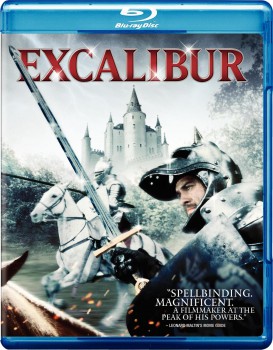 Excalibur (1981)
Excalibur (1981)
Directed by John Boorman. Starring Nigel Terry, Nicol Williamson, Helen Mirren, Nicholas Clay, Cherie Lunghi, Paul Geoffrey, Patrick Stewart, Liam Neeson, Gabriel Byrne.
One land! One king! 1080 lines of resolution!
Did you know that there is a re-make of Excalibur is in pre-production? Apparently, the lawyers at Legendary Pictures have forgotten that Le Morte d’Arthur and its associated characters are in the public domain and have been since the bleeding Dark Ages. No more about the re-make (for now).
The original, Once and Future Excalibur, is a crowning piece of high fantasy from the 1980s. It is also my favorite film version of the Arthurian legends. (Apologies to Monty Python and the Holy Grail.) Most movies about King Arthur, especially those before Excalibur upped the ante, are tatty costume dramas lacking magic, either cinematic or literal, and which feel like they were adapted from children’s editions of the story. (Apologies to Howard Pyle.) None of these movies connect to the sensations that the original telling of the legends, from Geoffrey of Monmouth, to Chrétein de Troyes, to Sir Thomas Malory’s Le Morte d’Arthur, create in me when I read them. A sense of dark mysticism pervades through the oldest versions of King Arthur’s myth: a mixture of paganism and early Christianity, a connection to Faerie, the eternal struggle between chaos and civilization. Excalibur, ignoring attempts to either look “realistic” or to resemble the generic expectation of a Hollywood costume drama, drives into the spiritual heart of King Arthur and emerges with something fantastic and often breathtaking.
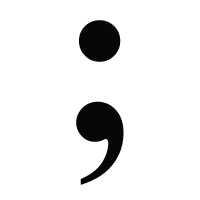 No, the title of this post is not a typo.
No, the title of this post is not a typo.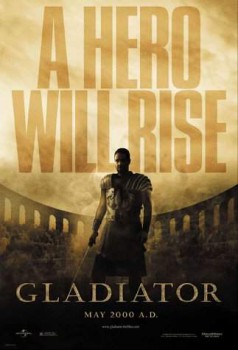 As of Sunday evening, The King’s Speech is the newest Academy Award winner for Best Picture. I am sure a virulent backlash against the English period drama is already underway, but let the record show that I thoroughly enjoyed that movie. It is not my personal pick for the best film of 2010. I would have liked Black Swan, Inception, or True Grit to win, but such was not to be, and The King’s Speech as a winner doesn’t anger me.
As of Sunday evening, The King’s Speech is the newest Academy Award winner for Best Picture. I am sure a virulent backlash against the English period drama is already underway, but let the record show that I thoroughly enjoyed that movie. It is not my personal pick for the best film of 2010. I would have liked Black Swan, Inception, or True Grit to win, but such was not to be, and The King’s Speech as a winner doesn’t anger me.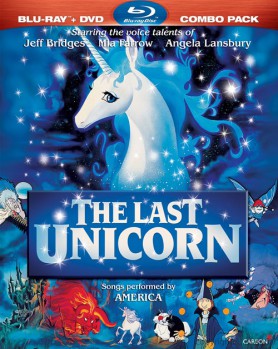 Today is the street date for the Blu-ray release of The Last Unicorn, the 1982 Rankin/Bass-ITC Entertainment animated film version of Peter S. Beagle’s classic 1968 fantasy novel, for which Beagle also wrote the screenplay. After a poor-quality DVD release in 2004, which came from inadequate masters and was presented pan & scan, Lionsgate Entertainment released an excellent two-disc DVD in 2007 as a 25th Anniversary Edition. Now that version is making the leap to 1080 lines of resolution for the new generation of Hi-Def presentation.
Today is the street date for the Blu-ray release of The Last Unicorn, the 1982 Rankin/Bass-ITC Entertainment animated film version of Peter S. Beagle’s classic 1968 fantasy novel, for which Beagle also wrote the screenplay. After a poor-quality DVD release in 2004, which came from inadequate masters and was presented pan & scan, Lionsgate Entertainment released an excellent two-disc DVD in 2007 as a 25th Anniversary Edition. Now that version is making the leap to 1080 lines of resolution for the new generation of Hi-Def presentation.
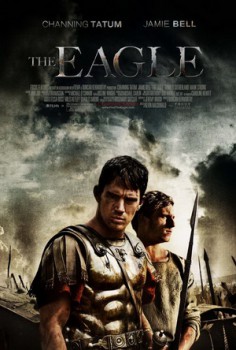 The Eagle (2011)
The Eagle (2011)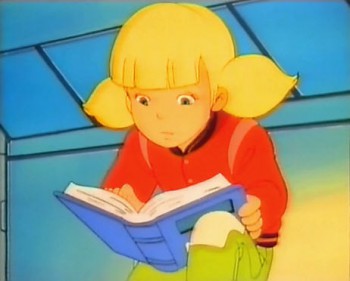 I wonder if elementary school children today have as inspiring a model on animated television shows as I did when I was ten years old. My hero was Penny Gadget from the syndicated series Inspector Gadget.
I wonder if elementary school children today have as inspiring a model on animated television shows as I did when I was ten years old. My hero was Penny Gadget from the syndicated series Inspector Gadget.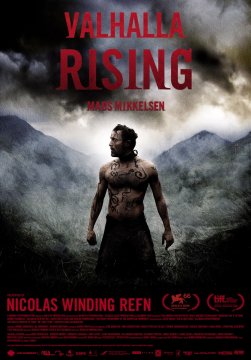 Valhalla Rising (2009)
Valhalla Rising (2009)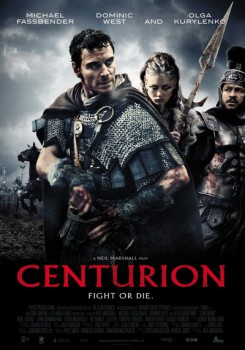 Centurion (2010)
Centurion (2010)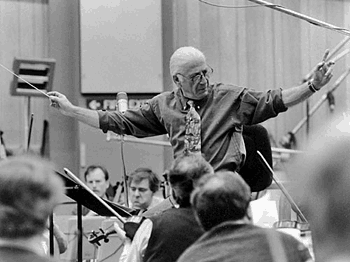 I always write with music playing. That’s not much of an admission. A few writers prefer to work in silence, but most that I have talked to say that they need to have music in the background while they work at their keyboards or notebooks. Some writers like to listen with headphones on as an extra seal against the rest of the world, but I only do that if I’m working in a public environment. Otherwise, I let my massively stuffed iPod play through the huge speakers in my apartment to surround me with music as I work.
I always write with music playing. That’s not much of an admission. A few writers prefer to work in silence, but most that I have talked to say that they need to have music in the background while they work at their keyboards or notebooks. Some writers like to listen with headphones on as an extra seal against the rest of the world, but I only do that if I’m working in a public environment. Otherwise, I let my massively stuffed iPod play through the huge speakers in my apartment to surround me with music as I work.